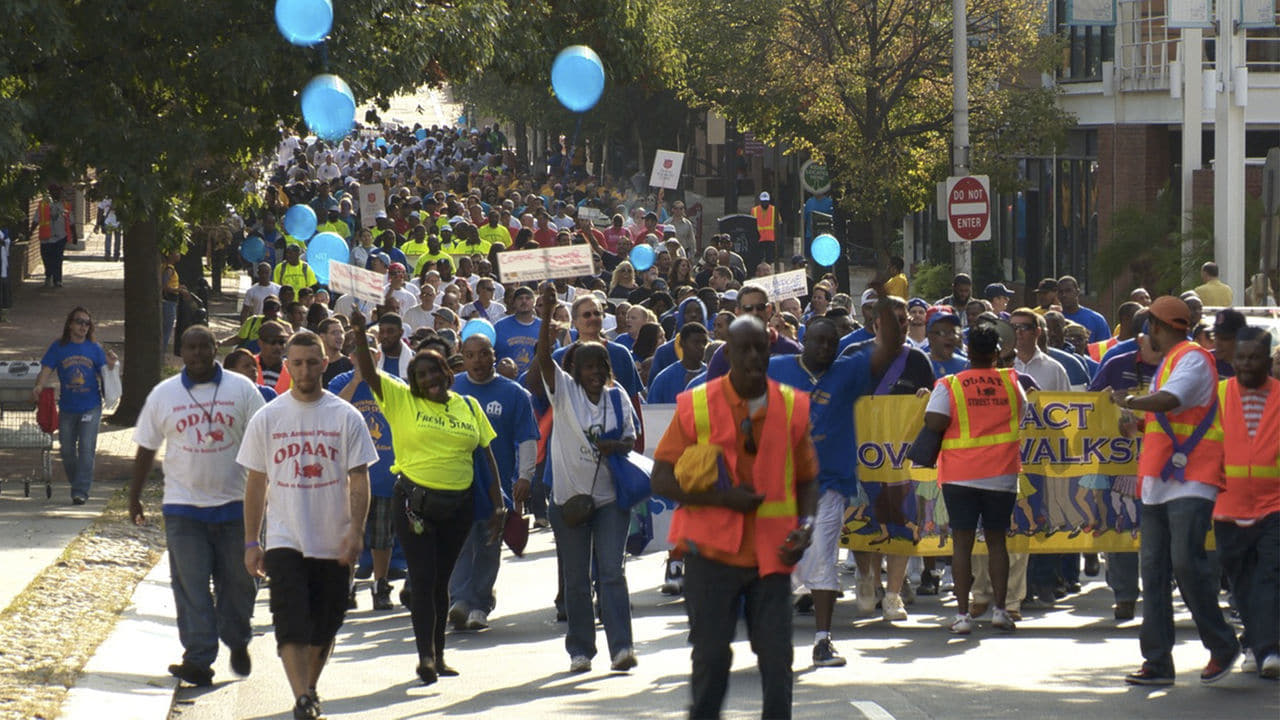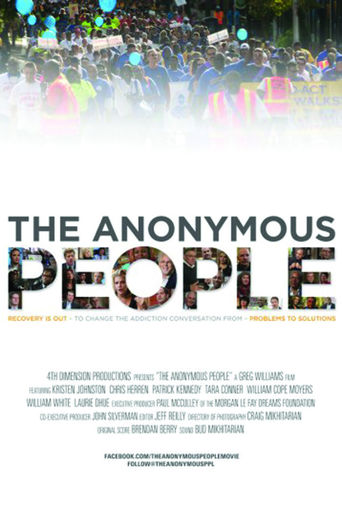

The Anonymous People is an outstanding documentary by a brilliant young film-maker, which comes at a time in the history of addiction treatment when a perfect storm (finally) is brewing. The more people in long-term recovery who are able to speak out, especially those in the public spotlight, the more positive change will come for those suffering from active addiction. A new and realistic balance between scientific and medical advances in treatment and the old-school approaches to sobriety must be found. As someone in long-term recovery, I know that AA has indeed helped millions and millions of people around the world to find sobriety. And will continue to do so. This film does not suggest otherwise. At the same time, we must recognize that while AA has been monumentally important, it statistically is no more successful than other approaches to abstinence. The fact remains that most who find long-term sobriety do so on their own. It is also vitally important that medical and pharmacological breakthroughs in addiction treatment be integrated into the mainstream and made more widely-available, and not undermined by the insurance industry, government, big pharma, and others, or scorned by some who believe "finding God" is the only way. While knowledge of a 12-step connection to spirituality surely has worked for many, it does not work for everyone. And to suggest to a newcomer in an AA meeting that it is not a "religious" program when the Big Book refers to "God" throughout is more than a bit difficult (and as any AA historian will tell you, Bill W. in fact wrote the original draft of the Big Book as a religious text, only to be persuaded to tone it down prior to publication). I, for one, have shed my cloak of anonymity. I am not proud of my addicted past, but I am proud of my recovery and what is has offered to me and those important to me. To those who would suggest this film is anti-AA, I would say I could not disagree more strongly. Hats off to Greg Williams! More please!
... View MoreAs a person in long term recovery myself, I appreciate that this movie made me think more intimately about the way that I choose to share or not share that information with others. It has long been obvious and frustrating to me how many people's lives are wasted because they cannot access adequate recovery from the disease of addiction. It did not previously occur to me that I could be influential in any way with regard to that problem. I am a teacher and generally hold my cards close. What would the community, parents, or my co-workers think if they knew this "dirty" secret from my past? On the other hand, I am proud of what I've accomplished. Maybe they would think that I am an amazing, talented, kind, generous,intelligent, responsible person, with integrity, who has overcome adversity, raised two children who have never had to witness parents using, who volunteers in the community, and contributes to society. Maybe others who are struggling might see that and get a glimmer of hope for themselves? I can appreciate the premise, and the hope, that if more people like me stood up and let the light shine on who we are, and how many we are, that it would no longer be a dirty little secret, but a proud accomplishment. We would not be seen as dirty, creepy, dangerous criminals, but people with a disease who are worthy and entitled to adequate health care & recovery. If it were not for seeing this movie, I probably would not have posted this in a public space. I am a person in long term recovery. For me that means that I have not had a drink or a drug since June 4, 1989. I write, I vote, and I make a positive difference in the world. Thank you to the producers of Anonymous People for reminding me that we are many, we are awesome, we are powerful, and we can change the world.
... View MoreAs a mother of a daughter who is two years into long term recovery from prescription pills, I am thankful that Greg made this movie. It gives families hope that their child can have a productive life and career. It is as difficult to deal with the stigma attached to addiction as it was to recognize the problem and find treatment. My fear was that she had limited her possibilities for career and family but that is just not true. She is finishing a degree in Social Work and will start her Masters next summer. She studied abroad this summer in Gulu, Uganda and is helping to translate a publication for a major support organization into their language which has 20 million people who speak it. Watching the movie showed me lots of others who have experienced happiness and productive lives. I only hope that the general public has a chance to view it. It is still difficult to deal with the reaction of friends who don't have a clue because so many have been silent about their recovery.There was an added benefit to the movie in that it helped educate me on the history of addiction and recovery. I thought that I was aware because I have been developing a cell phone app for families of people seeking recovery but I learned about work being doing in recovery of which I was totally unaware. I also met Carol McDaid who was a heroin addict as a teenager but as a lobbyist in DC has instrumental in the passage and implementation of the parity legislation.I highly recommend that everyone watch this film!
... View MoreI watched Anonymous People this past Tuesday a new documentary film by Executive Producers Paul McCulley and John Silverman at the very beautiful New York University Skirball Auditorium. As I sat in my plush and comfortable seat alongside my wife I couldn't help to think, I was watching a corporate film rather than a serious documentary on 12 step recovery in America. The central premise of this documentary Is a one note message, constructed to entice anyone who is a member of an anonymous 12 Step program, to break their anonymity and come out to the general public. Giving us the notion somehow, this will eliminate all stigmas and remove bureaucratic barriers that create impediments to addicts and alcoholics in their quest for sobriety. Director Greg D Williams has undertaken a subject matter that's never easy and always emotionally tricky to navigate through. Unfortunately and annoying to the viewer, Mr. Williams a first time director (no IMDb credits) has failed to present an accurate portrait of recovery in America. Rather he's led us to believe that NCADD short for National Council on Alcoholism and Drug Dependence has discovered the magic pill to the problem. The irony is Mr. Williams has fallen in the trap of being self serving to his cause, and judgmental to the very organizations that are helping the very individuals his film is trying to help.. Anonymous People has many failures to communicate its main idea and instead it comes off as self serving, sarcastic and sometimes pedantic in its zeal to enlighten us . So much for humility dictating the conversation, Anonymous People continually fails to demonstrate how the effects of this mass outing will impact the long established recovery community. Given the success 12 Step programs have demonstrated dating back to the foundation of Alcoholics Anonymous in 1935.It hard to imagine how successful the films proposals would be to the millions of suffering addicts and alcoholics worldwide. Anonymous People is as relentless in its tone and message as an addict on a mission to buy drugs and as flawed as the moral inventory of a recovering alcoholic. The film attacks 12 Step programs and their basic principles of anonymity through various interviews and lectures we are forced to endure, from self professed members in recovery to the so called addiction experts. To further drive it's painfully dull point home the film doesn't do itself any favors by labeling members of twelve step programs as "Brain Washed" and individuals "Hiding in basements."The producers of this fauxcumentary demonstrate an obvious agenda not to present a balanced message to the contrary they go out of their way not too. The theme music provides us with a sentimental muzak composed by Brendan Berry to further enhanced it's similarities to sitting in a dentist chair . It never broaches the subject of how their proposal may hurt long established organizations with proved track records. It doesn't touch on the possibility that relapse by their more famous advocates could hurt the person on the fence of entering a 12 step program. In the film actress Kirsten Johnson does extensive interviews and readings from her bio, and in true celebrity form, doesn't miss the opportunity to plug her new autobiography. This film doesn't disclose any of the reasons why anonymity is such a important component of12 Step Programs either from literature or recordings readily available to any researcher. These well known recovery programs like Alcoholics Anonymous, Narcotics Anonymous or Cocaine Anonymous have extensive writings on the subject of anonymity yet Director Williams does not explore nor reveals the 800 pound elephant in the room. It never bothers to explore the 12th Tradition from the aforementioned organizations that may explain why Anonymity is so crucial in their existence. Twelve Step programs have 12 traditions in place that guide their organizations and provide a moral compass to the groups that make up their organizations. Some of these include not engaging in any controversy or opposing any causes due to the nature of their Anonymity and absence of self promotion. One gets the impression that NCADD, who screened the film as well as being integral in its production is counting on exactly that passivity from all Anonymous organizations. Sitting through this promotional film in some ways reminded me of the industrial shorts some movie theaters use to play before a feature film would start. Mr. Williams has a definite calling in the 4am infomercial side of the entertainment business rather than serious documentary making. If you want to get a more complete picture of recovery and told in a balanced and comprehensive story try the 2012 award winning documentary Bill W.
... View More